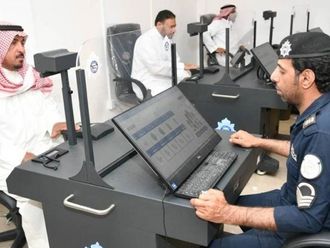
Thiruvananthapuram: A fortnight ago on July 27 Jerry Varghese, a 31-year-old assistant professor from the state capital, met with a two-wheeler accident that left him brain dead. When doctors communicated his condition to the family, his wife Lincy P Abraham decided to donate his organs.
She told doctors that her husband had always wished to do good deeds for others, and took that decision. Varghese, who leaves behind Lincy and their two-year-old daughter, will now live through five others – the corneas of his eyes, kidneys and liver were donated to five different patients.
That sounds heart-warming, but the fact is also that organ donations are rare occurrences in Kerala, and across India, too as the world marks Organ Donation Day on August 13. A brain dead patient’s body can be harvested to use the heart, kidneys, pancreas, lungs, liver, intestines, hands, face, eyes and much more, and even live donations are possible like donation of kidneys, but the fact is that the habit is yet to kick in.
Long way to go
Kerala may be a leader on multiple social development indices, but it lags in organ donation. “The state has a long way to go”, Dr Noble Gracious, nodal officer of the Kerala Network for Organ Sharing (KNOS), told Gulf News. According to him, one key deterrent is the fear among people whether donations would lead to enquiries and related harassment by authorities.
KNOS statistics show that as of this week, there are 1,810 persons in the waitlist for kidneys in Kerala. Such waitlists are common for other organs, too.
A similar situation prevails pan-India, too. Organ donations in India are meagre compared to the rest of the world. Across India, the organ donation rate is estimated at 0.34 per million population, which is among the lowest in the world, far behind Western nations like Spain (35.1) and even in comparison to Asian countries.
Improving but not enough
“Over the last ten years, organ donation has become slightly more common. Transplant activity as a whole has increased in India. But compared to the population and the magnitude of people who require the services, there is a huge mismatch”, Dr Devananda N.S., chairman of cardiothoracic vascular surgery at the Manipal Hospitals, Bangalore told Gulf News.
“On an average, per week, in a city like Bengaluru, only 2-3 people are considering organ donation. So you are no talking of even a two-digit number of donations per month in a city with a population of roughly 14 million”, says Dr Devananda.
Doctors say that though there is a law in place for organ donations in India, there needs to be a streamlining of procedures as well as an effort to create more awareness about the societal benefits in donating organs. At the moment, cultural and religious beliefs seem to be deterring donations.
A death knell
Dr Shabeerlai T.U., senior consultant at the KIMS Hospital in Kerala, says “Kerala’s lethargy in organ harvesting from deceased donors is a death knell for thousands of patients with end-stage diseases of liver, heart and kidneys”.
He says a general mistrust and labelling of organ donation as a ‘mafia’ are leading to a dwindling of cadaveric donations. For example, liver donations in Kerala came down from 64 in 2016 to 18 in 2020, and kidney donations came down from 113 to 41 in the same period, he points out.
Lucky few
While donations are few and waitlists swell, only a few are lucky to get the organs they are eagerly awaiting.
Like 11-year-old S.K. Nabeela Farhin, a Class 7 student in Bengaluru who underwent a heart transplant surgery recently, receiving a heart from a child of similar age who was brain dead. “I couldn’t run or play earlier, but after the transplant I can do everything. I can cycle, exercise… everything. I want to be like Sudha Murthy (social worker and chairperson of the Infosys Foundation)”, Nabeela told Gulf News.
Sadly, such stories of Indian patients getting a desperately-needed organ as soon as they need it is a rarity.








